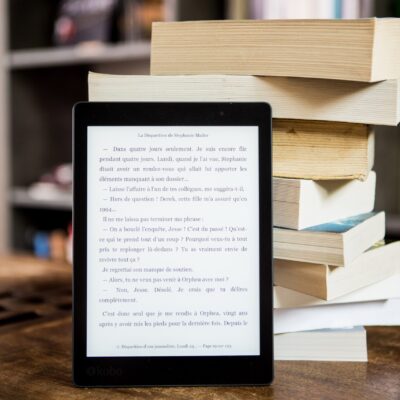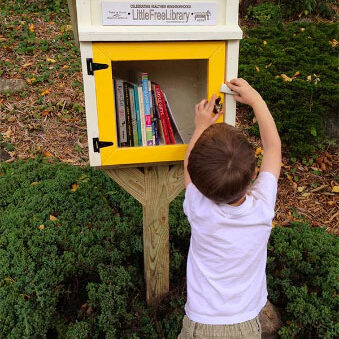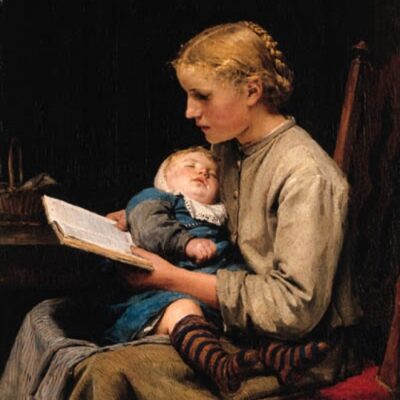The Grammarians by Cathleen Shine
Twin, n. A couple; a pair; two
Twin, v.t. & i. To part, sever, sunder; deprive (of)
—Webster’s New International Dictionary of the English Language, Second Edition
[Kindle: Location 17 of 3389]
As we live through these worrying times, it seems almost inappropriate to read about anything else but the issues that trouble us: financial and political corruption, crime and violence, generational trauma, climate change, the misuse of artificial intelligence, poverty and inflation, among quite a number of others. But when we narrow our choice of books to the exploration of only those addressing critical concerns, we miss out on brilliant ones like The Grammarians. Because writing about anything but weighty world problems is exactly what Cathleen Shine does so well.
In the novel The Grammarians, Shine uses two characters, identical twins Laurel and Daphne, to explore how language and words can be experienced and appreciated. At the start, language unites Laurel and Daphne. Their obsession with language begins when they’re still infants in their cribs. As they wait for their bottles, they debate, through their own private language, whether they can reasonably call their parents “late” with their milk if their timing is at least consistent.
…. It wasn’t the first time, it wasn’t even the first time that day, and she could sense time itself slipping. She wrapped her fingers around the bars. The bars were white and shiny. She could see them even in the dim light. With some effort she pulled herself up, then shook the bars until they rattled.
There was no response from the other side.
She shook the bars again. “Where are they? Where are they?”
Then the voice came. “They’re late, as usual.”
She shook the bars harder. She didn’t like the dark, it kept what she loved away from her. It kept her alone.
“Although,” the voice was saying, “if they’re late ‘as usual’ then that would be their usual time, and you can’t really say they’re late, can you?”
“You’re a pendant,” she said. “An insufferable pendant.” But what she wanted to do was reach out and touch the voice, which belonged to her sister, to lie down beside her, feel the safety of her, warm and breathing. “Pendant,” she said again instead. [Kindle: 38]
Laurel and Daphne continue to “speak in their careful gibberish,” and also begin to speak English. Their father Arthur half expected their first words to be, like Macaulay’s, “Madam, the agony is somewhat abated.” In unison. But there was no dividing line, really, between their nonsense talk and their foray into English. Like foreigners living in Italy who quite unexpectedly realize one day that they can understand Italian, Arthur and Sally realized that they knew what their children were saying.
The prattle had become language, and Sally no longer heard it as compelling background music. Every word was a word she could hear clearly and understand, a word that must be taken into account. [Kindle: 308]
Laurel and Daphne’s obsession with language is stoked by the arrival of a gift from their father, a tome which becomes their bible: “Webster’s New International Dictionary, Second Edition, Unabridged” published in 1934. (“Unabridged except for the missing pages 75-76, on which would have been found the word “altar.”)
Laurel and Daphne are waiting for their father to come home. They’re sitting on the couch with their hands over the back of it looking out the window looking for him.
The night the dictionary arrived the girls heard the drawn-out crunching of gravel as they did every night a favorite sound: the car in the driveway, their father. As adults, years and years later, they both particularly remembered that night. Happily watching their father step out of the car. The car door slamming shut. Another night. Daddy’s home, Daddy’s home. But then Daddy opened the trunk of the Buick and lifted out some sort of strand. He lugged it into the house, No, no questions yet. Just wait and see. They stood on the front porch, then, cold bare feet, watching him lift an enormous book from the dark trunk of the car, like a doctor delivering a baby, they later said, the biggest book imaginable.
The stand was dragged into the new den. The biggest book imaginable was placed on top, open, each side swelling like a wave in the ocean.
Their mother said it looked like an altar.
“What’s an altar?” Laurel said.
She didn’t really care. And she knew what the word ‘altar’ meant, somehow without being told. But their father said, “Let’s look it up.”
He flipped through the biggest book imaginable, the dictionary, a book that contained and explained every word in the language, he said. The print was so small it looked like print for a mouse to read.
But the page that should have had the word “altar” was missing. Thousands of tissue-thin pages, and that one was lost, torn out, gone forever.
“Damn,” he said.
Their mother laughed. “Look that up for the girls instead.”
Daphne wanted him to close the big book. She wanted to run her hand along the cliff of compressed pages notched with steps the size of a fingertip, each one labeled with letters of the alphabet.
Other books were unloaded from the trunk of the car that night, but none of the other books had its own altar. A man who worked at their father’s office had sold all the books to Arthur. The man’s father had died, and the man had no use for his father’s old books.
“You could say we’ve inherited them.” Their father handled each one as if it were precious, breakable.
Laurel and Daphne watched their parents put the other books in the new, empty bookshelves. The den itself had just been constructed, converted from a small screened-in porch. Their parents admired how the new room looked. There were only thirty or so books, but they were impressive. Some were bound in leather.
***
It was an instant library. Like instant coffee or instant soup. That’s what Uncle Don said. He said books were not meant for display, they were meant to be read.
Their father had been sitting comfortably in his new armchair in his new room, his legs stretched before him, pointing out the books to his brother. When Uncle Don said what he said, Arthur pulled his feet back. He no longer looked comfortable. One pant leg had risen up, and Laurel saw his skin, which looked uncomfortable, too, a strange colorless patch, vulnerable, almost frightened, like a squirrel waiting, frightened, on a branch until you passed by.
Why not fill the shelves with your own books, books you’ll really read?” Uncle Don said, as if answering their father, though their father had said nothing.
“We read them,” Laurel said.
“Yes, well, they would, wouldn’t they?” Uncle Don said. He pulled a volume from a shelf. “The King’s English. Utterly appropriate for a five-year-old.”
“Don’t start up with them Don,” their father said, a little wearily.
“Yeah,” Daphne said. “Don’t start up with us.”
She got a look from her father and said quickly, “Sorry, Uncle Don. Start up with us!”
That made their father laugh and Uncle Don look up at the ceiling and say, “God help us,” which pleased Daphne. She looked at Laurel expecting a sly smile of approval. But Laurel was now sitting on the floor, her lips moving as she slowly read from The King’s English.
“’air of cheap or-na-ment…” [Kindle: 232 and 260]
The twins are united in their fascination with words. They pull the ottoman in front of the altar, climb up, and stand there, leafing through the dictionary…
Collie, colie, coaly, coal-black. See COAL. 1. A large dog of a breed originating in Scotland, where it has been used for generations in herding sheep. The breed is large, standing 20 to 24 inches at the shoulder and weighing 50 to 60 lbs. The variety with a rough and profuse coat is more common and decidedly more commanding than the smooth-haired variety.
In the frail, almost transparent pages, the collie looked like Lassie and indeed was commanding. On other pages there were other dogs drawn in fine line profiles. There was a long, low dachshund, decidedly less commanding than even the smooth-haired collie, and a seriously uncommanding dog with a fanciful name, the Dandie Dinmont terrier.
“And spaniels, spaniels, spaniels,” Laurel said. “Every spaniel has its own drawing.
She brought this up with her father one night after dinner.
“Why isn’t the dictionary nice to cairn terriers? It gives them no picture. And look what it says about them: employed chiefly to enter rock piles and dislodge vermin.”
“Vermin.” Not a nice word. And while other dogs were described as “noble” and “loyal,” cairns were “employed.”
“The dictionary is not fair.”
“I don’t think it’s supposed to be fair, exactly,” their father said.
“It’s not supposed to be mean, is it?”
“Well. It has mean words in it, so we can understand them and know what they mean, but…”
“How can ‘mean’ mean mean and also mean mean?” Laurel said. [Kindle: 285]
Language is Laurel and Daphne’s passion, and, in their childhood, they take on complimentary language roles. Daphne collects words from the dictionary (e.g., fugacious (fleeting), oxters (armpit), aposiopesis (the device of suddenly breaking off in speech) as Laurel carefully fills in the definitions. “…the words she copied from the dictionary might just as well have been the handsome penmanship of a Victorian vicar inscribing the species of each dead bright-winged lepidopteran.” [Kindle: 2641]
Catherine Shine masterfully examines when and how something changes to something else. As Laurel and Daphne reach adulthood, their close bond severs as their love of language takes two different paths. They use ‘language combat’ to earn independence and differentiate themselves from one another. Daphne supports prescriptivism and writes a popular language column called “The People’s Pendant.” Her main goal in life is to preserve the dignity and elegance of Standard English. Laurel advocates for descriptivism, arguing that instead of focusing only on upholding language’s historical precedents, we should allow language to grow and change over time. First a kindergarten teacher, then a mom, she discovers “Fowler’s Modern English.” This motivates her to find more examples of language in its natural habitat, including letters collected by the Department of War. The misspellings strike her as painfully eloquent, not mistakes at all, but cries of the heart, documentation of upheaval in a family, in a social order. [Kindle: 2715] Laurel turns the letters into poetry and stories that celebrate the beauty of idiomatic writing; Daphne clings harder to the rules that she argues her sister is constantly breaking and the feud escalates to a full-out “Ann Landers-Dear Abby War.”
The Grammarians is a little darker than some of Catherine Shine’s novels, but it brought laughter and light to my world as I read it (and hope to reread it in the near future). The dialogue is clever and vibrant, funny and charming but also full of little digs and tortures that grow and fester. The novel is complex in all the right ways, brilliantly examining what it means to be a twin, then imagining them in terms of language, and placing them in the context of the suburbs in the 60s then New York City in the 80s. To add to the layers of complexity, Shine provides another perspective on words and how they change over time by heading each chapter with a word and a definition from “Dr. Samuel Johnson’s Dictionary of the English Language” published in 1755. She also slips in a number of changes in person and in tense, using a future tense coda to end the novel. This is a page-turner but one in which you have to be wide awake, sitting up in a not-so-comfortable chair.
Catherine Shine’s The Grammarians is magical, insightful, endearing, and wise. It’s challenging in a very good way. I enjoyed reading it immensely.
Additional Resources include:
American English Grammar by Charles Carpenter Fries


















What a terrific summary/review. I found this novel fascinating, the writing exquisite. Your review made me want to read it again!
Thank you Nan and happy up-coming birthday. I loved this novel and plan to return to it again and again.